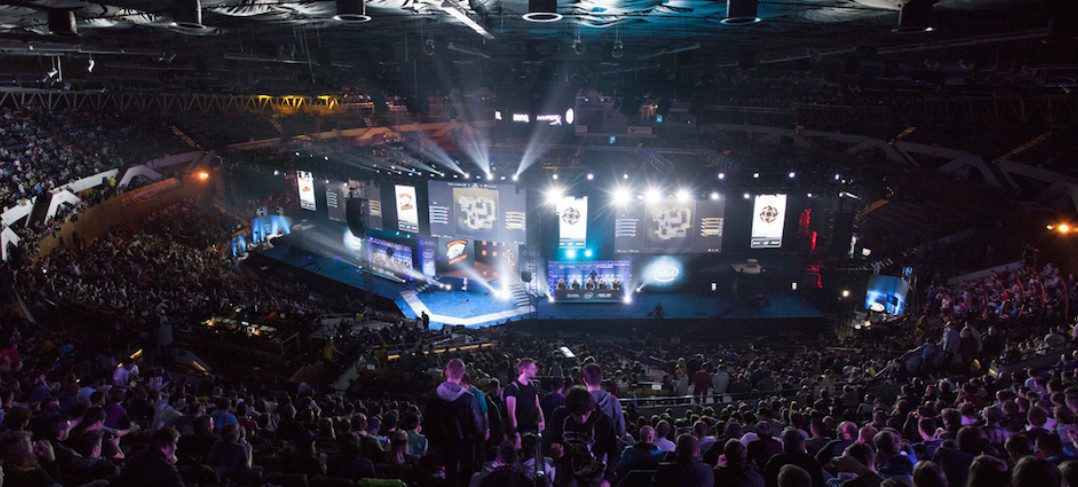Watching other people play video games might seem like the definition of passive viewing. But eSports is where the action is right now when it comes to digital innovation and skyrocketing digital revenues. And while the “athletes” may not all be buff, they are after all video gamers, these champions sure know how to put on a powerful show for legions of fans around the world.
The current global market for professional electronic gaming: $750m and counting, with money from sponsorships, ticket sales, gambling and merchandise – and this doesn’t include the millions and the billions that some video games earn from players. Commanding a worldwide fanbase of more than 200m, fierce loyalty and massive buying power, eSports are exploding, while providing the rest of the entertainment industry with a roadmap to digital victory.
Get into the Game
A couple of years ago, when Amazon paid $1bn for the online gaming network Twitch (a « YouTube for videogames”) many media executives and analysts scrambled – not just to comprehend the extraordinary valuation, but to understand the business model and even the basic entertainment experience. Today, with year-over-year revenue growth of 30 percent in the eSports arena, more companies and moguls want a piece of the action. Fresh eSports platforms are tapping multimillion dollar investments from media moguls such as Ashton Kutcher and Mark Cuban, while Turner Broadcasting and WME/IMG have bet that live video-game competitions are ready for primetime TV: in September, the companies formed a new e-sports gaming league, with TBS set to broadcast 20 live events into 90 million homes over the course of 2016.
Enthusiastic eSports audiences represent a desirable demographic: the majority have full time jobs, high incomes, tend to spend big on technology and subscribe to services such as Netflix and Spotify, according to the Canadian League of Gamers, a new group that plans to capitalize on sponsor interest to establish professional championships.
ESports tournaments for just one game, the massively popular League of Legends, drew an audience of 36m in 2015, much more than the NBA and Stanley Cup Finals combined, with League of Legends fans watching a whopping 360m hours of live eSports on screens large and small.
The digital innovator behind these numbers: Riot Games, a role model when it comes to digital strategy, fan-building and business derring-do.
Read the Riot Act – Top Takeaways for the TV Business
How does Riot do it?
A great workplace: In 2015, Riot debuted at number 13 on Fortune’s “100 Best Companies to Work For” recognized for its spot-on employee motivators such as group trips to eSports tournaments, a video game allowance for staff and team courses ranging from mindfulness to fencing.
Outstanding fan focus: Fans are players too. And Riot knows how to nicely blur the lines between its pro-players and the home audience. Fans stay connected to League of Legends, to favorite champions and to each other, not just during tournaments but throughout the year. Riot knows how to keep fans in the fold and keep them coming back. As a group, fans spend more than a billion hours each year playing League of Legends and still they return for more, watching their superstars play to win in arenas and virtual arenas that transform “games” into “sports”.
Superior digital platform: Combining the best of a live television experience with Netflix-style streaming, editorial news and sports stats as well as social media leaderboards, this platform is an entertainment fan’s dream and a media company’s model-of-excellence.
For the win: Riot Games shows big entertainment how it’s done when it comes to building a formidable, digital competitive advantage.
Up Your Game
In addition to taking from the best, what can traditional TV businesses do to capitalise on eSports? If you are a broadcaster with a brand and demographic that dovetails with eSports audiences, consider adding eSports to your programming schedule, including event shows, news round-ups and magazine-style aftershows. If you are a producer, cast eSports talent in your new TV shows to instantly gain rabid fans, launch a reality series featuring dynamic eSports rivalries or even create scripted drama – think “Friday Night Lights” set in the world of eSports. If you are a distributor, be sure you are placing your current, relevant avails beyond broadcast and onto Twitch, YouTube and emerging digital platforms.
eSports are here to stay. It’s game on, so prepare to compete and have fun.
Join our MIPTV crowd at the Digital Talks sessions, including the « eSports: The Next Big Play? » panel, Monday April 4, 2016. I’ll be hosting the day’s events, and hope you’ll come by and say hello!
Image © Adam Ziaja/Shutterstock




